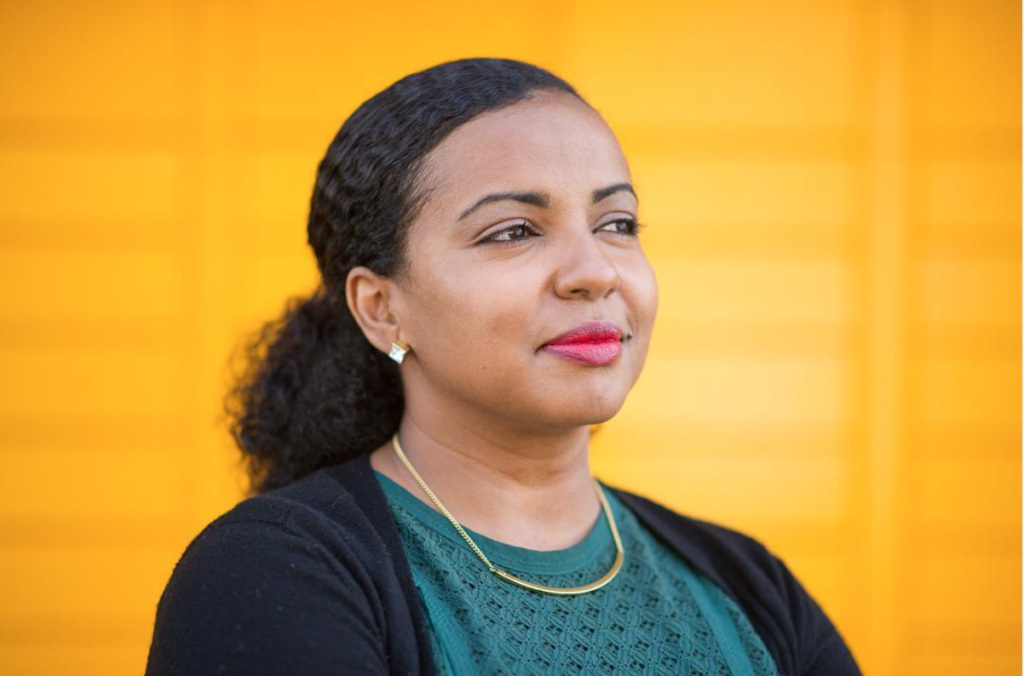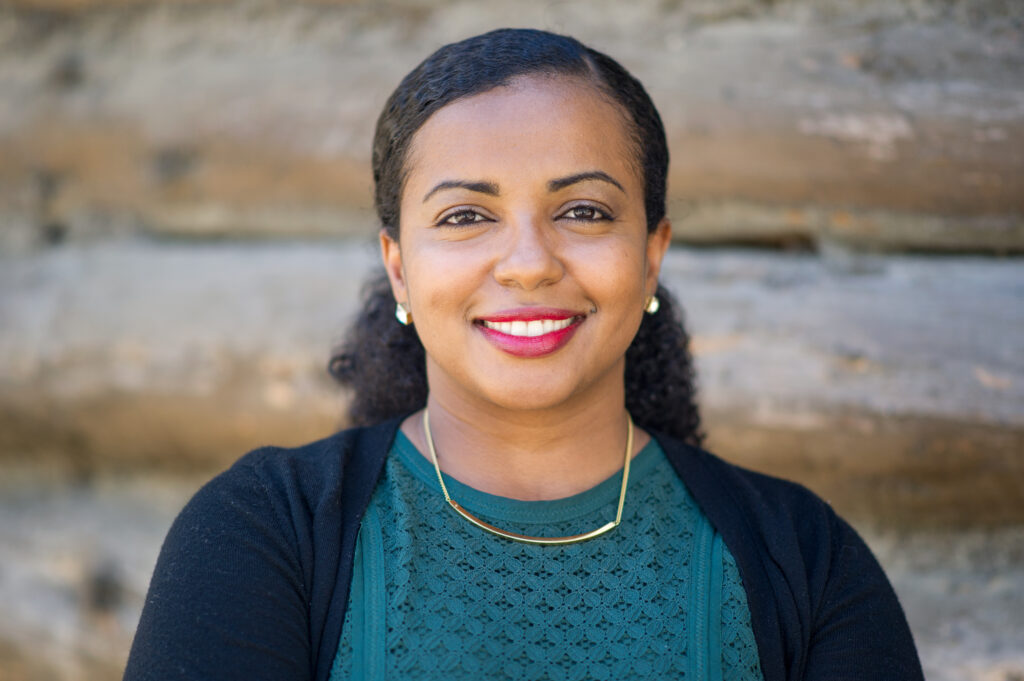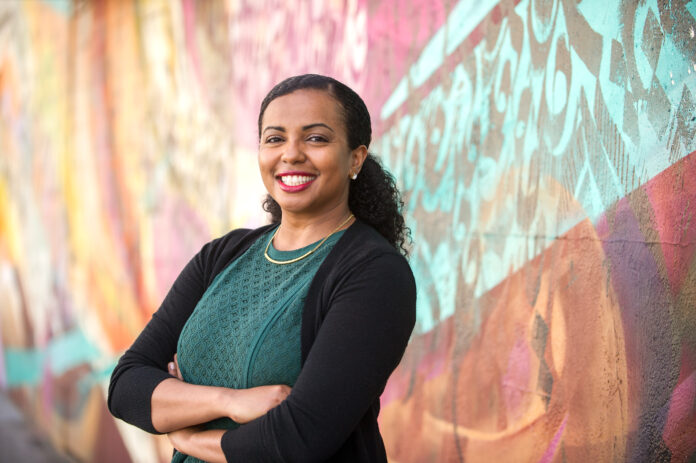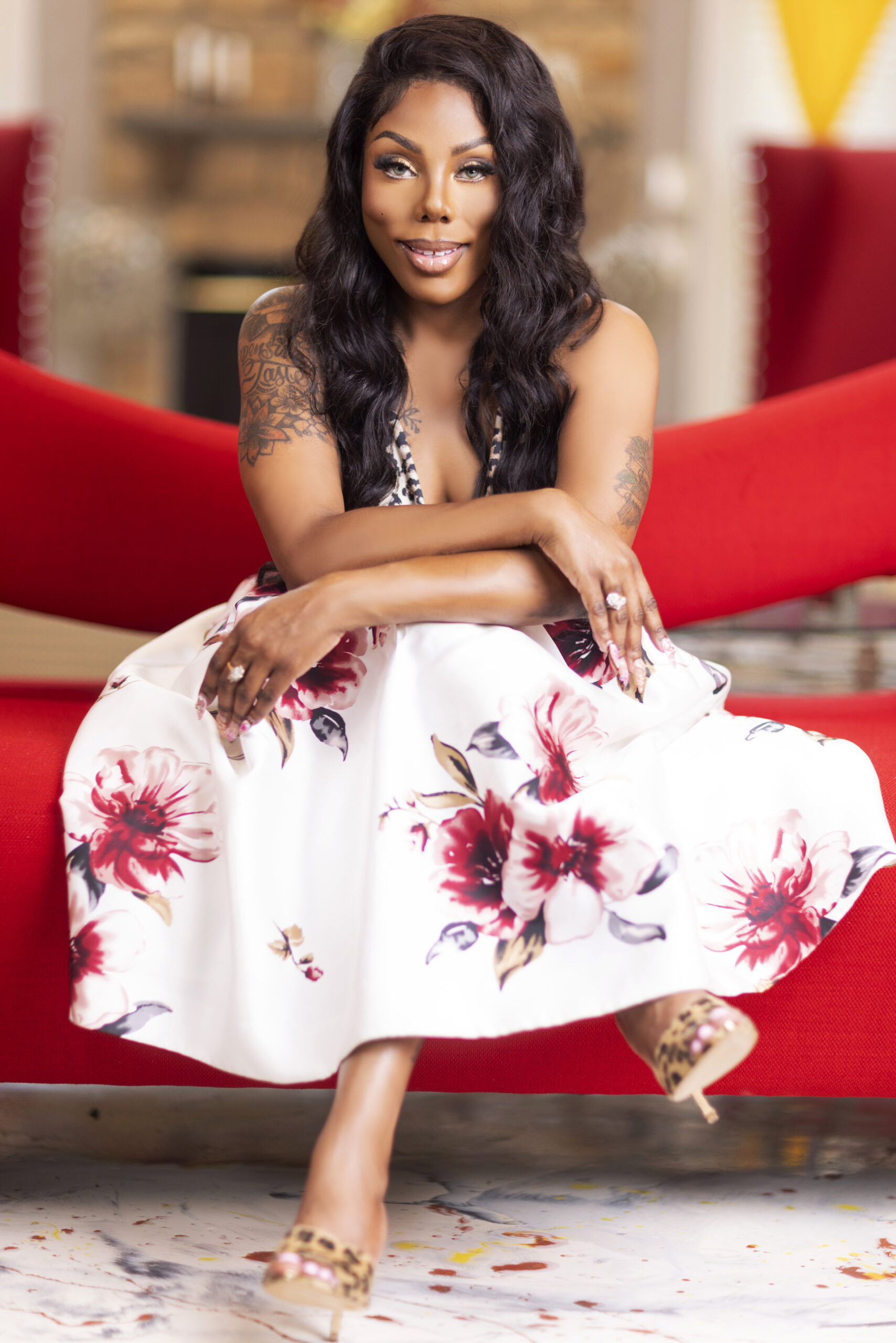( ENSPIRE Feature ) CEO of Change Consulting, Bilen Packwood Spearheads Social Justice Efforts Nationwide
ENSPIRE Contributor: Keegan Kerns
Throughout her life, Bilen Mesfin Packwood has been a dedicated ally to all marginalized groups, whether it is those exploited for social, racial, or economic. For this reason, she has committed her life’s work to helping change-makers, visionaries at nonprofits, foundations, and mission-driven entities all succeed at positively impacting the lives of others through her own expertise with strategic communications.
Bilen Mesfin Packwood cultivated much of her expertise in communications when she helped with media and communications for Kamala Harris when she served as then, San Francisco District Attorney. It was there that she worked on a wide range of skills, whether it was strategies to support key initiatives of the District Attorney or working on day-to-day communications. The combination of this experience along with decades of media and communications has led to Bilen Mesfin Packwood becoming one of the most established and respected individuals in the communication space. This is especially true for those wanting to create change in their community.

This deep knowledge and understanding of the industry eventually led Bilen to become the CEO of Change Consulting, a firm dedicated to ensuring success for social justice efforts through targeted regional, national, and local communications and press opportunities. Bilen Mesfin Packwood has supported communications efforts for organizations such as the Black Organizing Project with communications for the George Floyd Resolution, which resulted in Oakland’s first police-free schools. Additionally, she has worked with five Bay Area counties to design and launch the Deliver Birth Justice campaign, which is the first Bay Area-wide campaign focused on raising awareness and promoting solutions to address maternal and infant health disparities for Black birthing people, and she continues to work with many other programs, both local and national, to achieve social justice goals.
ENSPIRE interviewed Ms. Mesfin about her efforts to push social justice and how she stays motivated in this uphill battle.
What inspired or encouraged you to become a changemaker and stand up for justice for communities of color?
I have always loved writing and storytelling, and have done it in one way or another for almost all my life. I wanted to become a journalist because I wanted to tell stories that I didn’t see get told, stories like the people in my community.
After experiences as a journalist at the Associated Press and elsewhere, and as an in-house communications professional at the San Francisco District Attorney’s Office, I decided about 13 years ago to start working on communications for social and racial justice. I wanted to use all the skills I had learned around media and communications to help changemakers tell stories about their work to create a more just world. I have been on a path of building a full-service communications agency that serves changemakers ever since.
In a lot of ways, for me this work is personal. I am a Black immigrant woman, married to a Black man and raising a Black daughter. I learned a long time ago that a lot of the issues I experienced growing up as an immigrant – racism, exclusion, poverty – were not unique to me, and that they were systemic.
You became CEO of Change Consulting in 2008, which aids a wide variety of social justice efforts through different communications and press opportunities. Was it difficult to adjust to such a different role compared to your previous positions, or was it easy to slip in and take charge and responsibility for the organization?
I have been on a path of building a full-service communications agency that serves changemakers since 2008. When I first started, I worked out of the kitchen of my studio apartment. I figured as long as I had my laptop, I could work anywhere. I was a solo consultant for a long time. In 2015, I decided I wanted to build a team, and that’s when I started hiring and growing. Today, we are a team of nine folks with office space in Oakland, working on amazing projects with inspiring leaders.
The process of starting and growing a company, especially one that is trying to have just and equitable practices, is always fascinating to me. Learning how to grow and lead a company is very different than supporting clients on communications. I have to learn and continue learning a completely different set of skills. It is critical that I balance not just working in the business but also on the business, focusing on things like operations, finance, marketing, and team building. I don’t have an MBA so I try to learn from everything and everyone. I am always taking classes or courses, reading articles and books about leadership, talking to folks, and learning on the job. I am learning a lot about how to build a container and organization that cares for its people.
It not only requires a different skillset, but it also requires a different mindset – a belief that I can be a leader and a business owner. I work just as much on mindset as I do concrete skills through affirmations, mantras, countering negative thoughts, and other mental health practices.
Change Consulting has been involved with a large variety of other organizations and projects from local to national, including the Deliver Birth Justice campaign in five Bay Area Counties and the California Black Freedom Fund. How do you get involved with such a wide variety of groups, and when looking at all the different movements out there what traits make you think you could help that group in particular?
Change Consulting is all about partnering with social and racial justice leaders who are working on some of the most important issues of our time and providing the communications support they need to make change possible. We do very little marketing, aside from social media. A lot of our clients are long-term or come to us through word of mouth.
We work with both organizing and advocacy groups on the nonprofit side, and on the philanthropy side, foundations that are committed to racial and social justice. Our clients bring the vision, mission, and people-power, and we bring the experience and expertise in racial justice communications and knowledge of communications best practices.
I always say that if it’s about Black communities and communities of color, about dismantling unjust systems and removing barriers to opportunity, and about creating the conditions that make change possible, then it is most likely a good fit for us.
For each of us individuals who want to make a difference, what are some of the best ways to get involved in these different programs, whether it’s searching for our own local initiatives, creating them, or getting involved in larger national movements?
Given all the huge problems facing the communities we care about, it can be overwhelming to try to figure out how we can help. People are more interested than ever in social justice and social change, which is exciting. I find the best way to start is by identifying one or two issues that really inspire you or keep you up at night, and then finding out who in your community or in the country is doing something about it.
I also recommend sticking with groups and causes for the long haul. It’s too often the case that supporters engage in onetime transactions or episodic relationships with nonprofits — especially when an issue goes viral. We’re in and then we’re out. But, it can take years for so many heroic changemakers and organizers for equity and justice work to tackle big issues and big problems, even without much attention, and they need sustained support and engagement to get results.
Last year, George Floyd’s murder galvanized a national push for racial justice. But as we have seen in the aftermath, real, transformative change will not be easy and it will take time. The work to build power and change unjust systems is a year-in-and-year-out process of organizing, canvassing, and engagement. Even if mainstream attention may have waned, there are groups throughout the country carrying on the work of racial justice, youth and criminal justice reform, and police reform. And they still need our support. When you find an organization or cause you want to support, commit to staying involved in some way for the long haul. That way, you’ll have a front-row seat on how to make a sustainable, lasting difference.
With many of the social, racial, and economic injustices you’re fighting against being ingrained in America’s culture, it seems your task is almost herculean. How do you stay motivated despite the many tragedies and injustices that still occur, and what would you recommend for future generations to do in order for them to find the same motivation to create a better, more fair society?
I hear you on it seeming herculean, and I do believe that – especially for people of color who are working in the social justice sector for whom these issues are so deeply personal. We must find time to rest, to experience joy, and to take care of ourselves as we can.
Aside from that, what keeps me inspired are the people we work with. I always say that changemakers are my rockstars. Every day, I am inspired by the brilliant people – mostly Black folks and folks of color who refuse to accept the status quo, have dedicated their lives to justice, are doing the work even when it is not glamorous or popular and they are winning victories in cities, counties, and states across the country. These are courageous and visionary people who truly are innovating new models and systems to replace harmful ones.
I am reminded of Martin Luther King, Jr.’s words that “the arc of the moral universe is long, but it bends toward justice.” When things get hard, we can look to our rich history of civil rights and the global movement for human rights or we can look around right now in our communities to find stories of resilience, of commitment to change, and of an unflagging belief that a better and more just world is possible.

Bilen Mesfin Packwood’s dedication to using her skills in media and communications to help social justice efforts gain traction and slowly succeed is an excellent example of how we can use our skills to make a positive impact. Besides this, it shows that no matter what skills we gain throughout life, we can use them as Ms. Packwood has in order to work towards something better. While we may not have the same exemplary resume as Ms. Packwood, we should all look towards Bilen Mesfin Packwood as an example in that even if all we offer is time, we can still use that to help social justice efforts gain traction and create a better society for all of us.
You can follow Bilen Mesfin on her social media and keep up to date with Change Consulting on their website.
Related Articles:‘Black Babies Awareness Month’ Spotlights Racial Inequities Among Children







